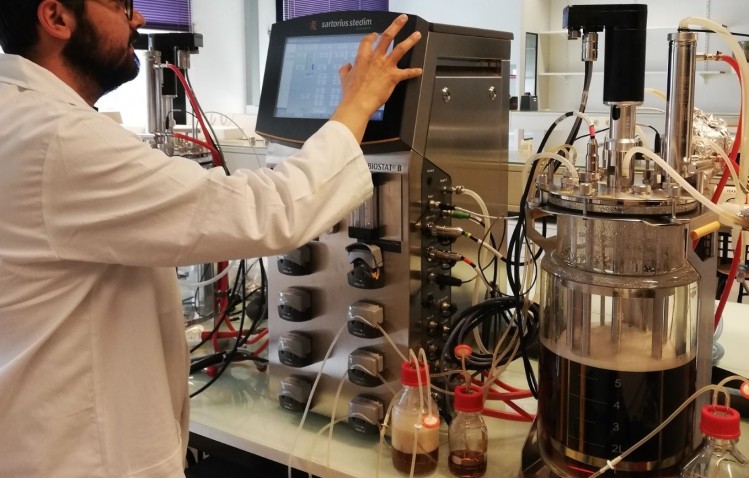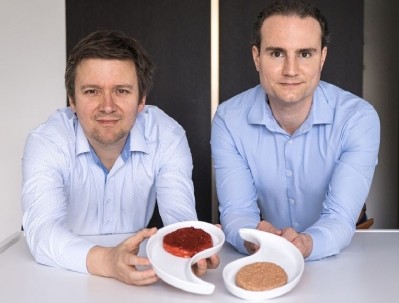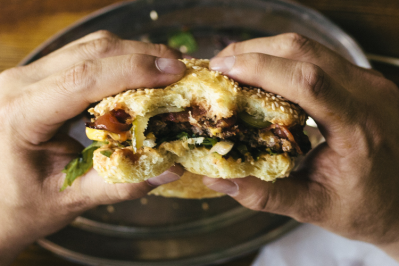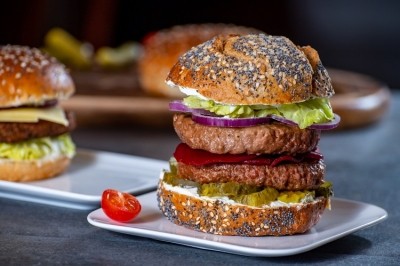Start-up cracks GMO-free animal heme proteins for ‘meatier and more nutritious’ alternatives

The company is able to bring its technology to the market after its international patent application was published by the European Patent Office.
In what it called a ‘world first’, the company has used precision fermentation to produce GMO-free heme proteins that are bio-identical to animal proteins chicken, beef, pork, lamb and tuna.
Paleo's animal-free heme platform will be available for manufacturers 'shortly', it said. It estimates that the first meat and fish alternatives with Paleo ingredients can be served to consumers by 2023.
Paleo CEO and co-founder, and former Flemish Parliament member, Hermes Sanctorum told FoodNavigator the 'ground-breaking' technology will help bring the ‘true taste and aroma’ of meat and fish to plant-based alternatives.
"We are developing animal protein without the proteins,” he said. “We're focussing on heme proteins for manufacturers to add to plant-based foods in order to increase the sensorial experience but also increase the nutritional value… If we want people to adopt meat and fish alternatives, they will have to taste good. We offer more choice and better taste."
Heme is important when it comes to resembling conventional meat products. Heme is responsible for the taste and colour of meat. Before cooking, heme will give meat alternatives a red colour that turns to brown during cooking.
In side-by-side tests, the difference between a plant-based burger using Paleo heme and a conventional plant-based burger was ‘immediately clear’, we were told. "The burger with bio-identical beef heme smells like a burger, changes colour when cooked like a burger and tastes like a beef burger - the other one just doesn't."
“We're starting collaborations with many types of plant-based food manufacturers making things like dried sausages and using all kind of bulk ingredients like soy and pea oyster mushrooms,” continued Sanctorum.
“You add our product in very small quantities like on 0.1-1% of the final product is our heme protein, add them like salt and pepper to a soy burger and instead of having the taste of the soy it tastes meatier.”
Nutritional breakthrough
Heme iron is found only in animal flesh like meat, poultry, and seafood. The Paleo range therefore offers manufacturers opportunities to improve the nutritional quality of meat alternatives, Sanctorum said. “The iron in heme is easier for the human body to absorb than iron in vegetables. Our heme is animal-free but bio-identical to animal protein.”
Publication of the patent, meanwhile, gives the company 'crucial protection' and a 'big competitive advantage', we were told, meaning "no one else can try to imitate the product nor apply for a similar patent". Companies (Paleo included), however, will need FSA/EFSA approval before commercialising.
GMO-free
Labelling is therefore another advantage. Paleo's process allows food manufacturers to comply with GMO-free labelling in most markets, it said. “Paleo is the first to develop a heme fermentation process where the yeast cells release the heme into the environment,” it claimed. “The resulting heme is a highly pure product that is GMO-free.”
Scalability challenges
Paleo has raised $2.5M in seed funding to date and is now working with financial and strategic investors on a Series A round to bring its products to the market and to broaden its portfolio of products.
Despite the buzz surrounding the nascent precision fermentation sector, however, a lack of industrial scale bioprocessing capacity remains a bottleneck to the industry and is largely unavailable.
Paleo is preparing market entry in the US, Canada, Europe, Latin America and Asia and said strategic partnerships with contract manufacturers are in place to ramp up production.
Sanctorum admitted thought that building capacity is one of the challenges facing Paleo. “There are fermenters, but there needs to be more,” he said. The company’s volumes will therefore be determined by finding collaborators to scale the bioprocessing capacity as well as food manufacturer customers.
“At this stage we are still producing grams for testing but once you commercialise you need to be able to make tonnes and larger volumes. We are developing different scenarios like how many tonnes we can produce by what time at what capacity do we need for that - but it needs to be a lot.”
The technology of fermentation meanwhile has been well known for centuries and is similar to beer brewing, which makes production highly scalable. The fact that Paleo heme is “cleanly separated from the yeast cells makes the production process faster and also more sustainable”, it stated.
"Paleo heme production is only the beginning,” added Andy de Jong, COO and co-founder of Paleo. “Using our technology, we can also create other ingredients that are essential to the meat or fish experience and mouth feel, like fats. We're very excited about the possibilities that our technology offers."

























